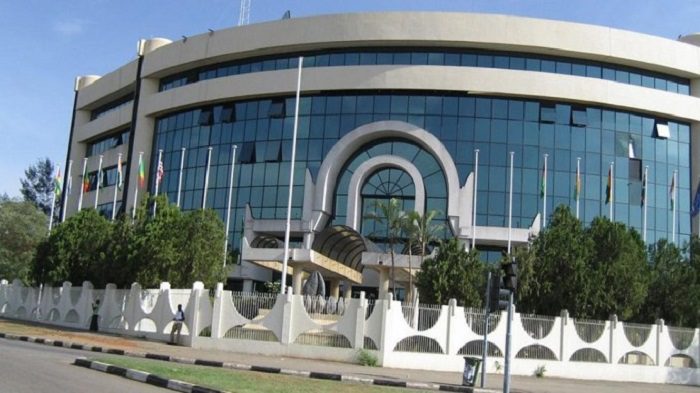The President of ECOWAS Court of Justice Justice Edward Amoako Asante has applauded Germany’s Friedrich-Ebert Stiftung (FES) foundation for its dogged commitment to the promotion of free, fair and credible elections in West Africa as well as the prevention of crises and violence in the region.
In a message to a delegation of West African youths, who were at the Court under the auspices of the “Know ECOWAS training tour” organized by the FES on Wednesday, Asante praised the non-profit foundation for its role in mentoring young experts in order to equip them for leadership positions
The President, who was represented by a Senior Research and Legal Affairs Officer, Ghislain Agbozo, noted that the annual tour affords the Court an opportunity to apprise the youths, who are the future of the Community, about its mandate in the ECOWAS integration project, particularly in the protection of human rights which contributes to regional peace and stability.
The FES Coordinator of the Get to Know ECOWAS Training Tour, Juliana Anosike said that their visit to the Court is part of the foundation’s contribution to familiarizing Community citizens about the Court through the partnership that has spanned about 12 years.
She explained that it is designed to provide young West African experts of varied disciplines with the opportunity to discover ECOWAS, discuss with the Executives and experts working with the regional body about its structures, role in regional security and politics.
She said this year’s training, whose theme is “Security for all: Women`s Participation in the Promotion of Human Security in West Africa” had only 18 experts because of the raging pandemic and expressed optimism about the possibility of improvement next year.
A statement by the ECOWAS Court in Abuja said that Agbozo’s presentation was on the role of the court in ensuring/enforcing women`s inclusion in peace processes in the region, in which he cited many cases where the Court gave its decision in favour of women whose rights were violated across the sub-region.
He noted that these are exemplified by the landmark cases of Hadijatou Mani Karaou vs Niger Republic (2008), Feu Abdou Ali (demand for Advisory Opinion by the ECOWAS Commission, 2013) and Dame Modupe Dorcas Afolalu vs Federal Republic of Nigeria, among others.
He, however, maintained that the role of the judiciary in peace process is not direct or obvious but that since the 2005 Supplementary Protocol which granted the Court a human rights mandate, it has worked to ensure the protection of the rights of women in line with the extant international instruments. By safeguarding human rights, particularly various aspects of the women’s rights- right to work, access to justice, protection against discrimination, slavery and degrading treatments, he said the Court has, through several binding decisions, impacted the situation of human rights in ECOWAS Member states.
Moreover, he noted that its judicial functions has impacted indirectly on development, social justice, peace and stability in the sub-region.
GIK/APA


